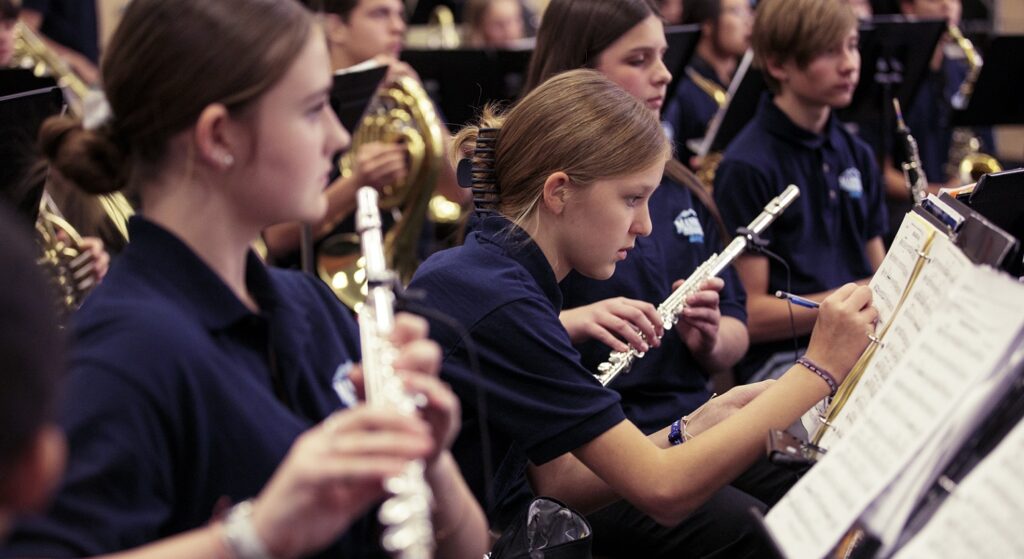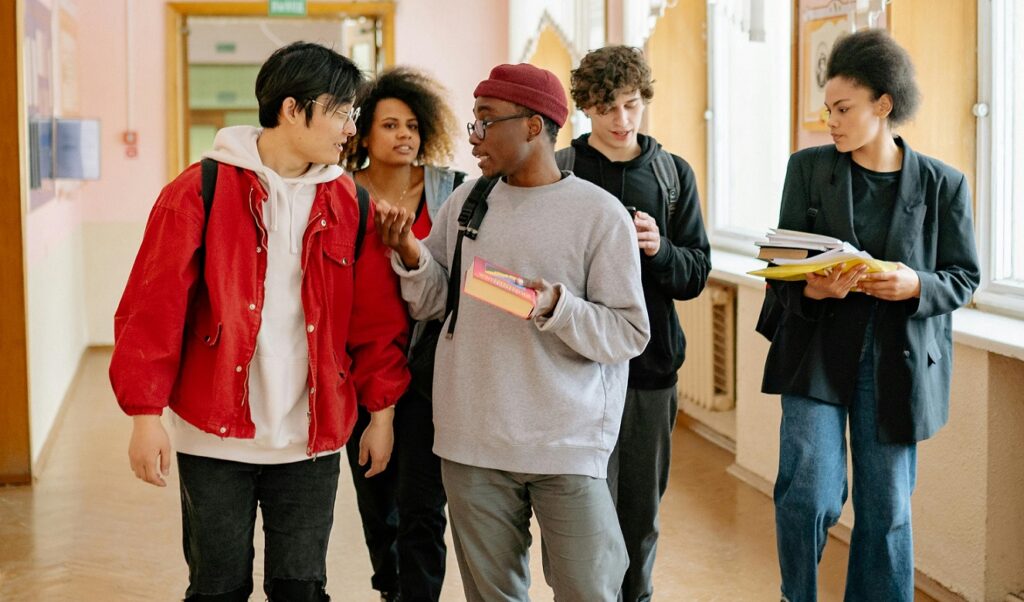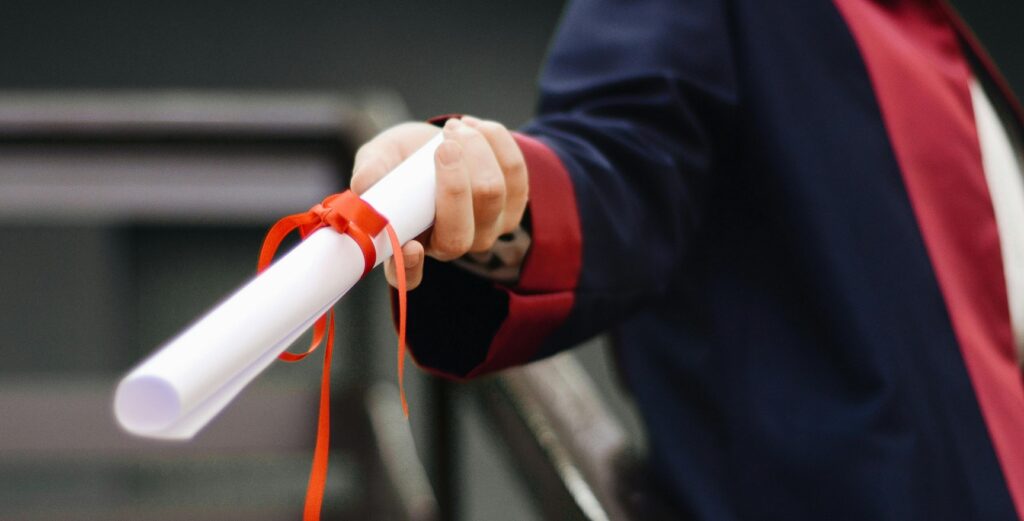Subbing Success
Being a substitute teacher requires flexibility, organization and compassion. Try these tips to succeed.
After I received my degree in instrumental music education, I found myself in the exact field of my studies — but only for a short period of time. I had been hired as a general music teacher at a primary school, and my first year flew by. When June rolled around, my long-term substitute contract ended. By September, I still hadn’t found a full-time music position in my area, so I decided to start substitute teaching for two nearby districts.
Music educators find themselves subbing more often than you might think. Even the music educators I know who have full-time music ed positions often end up substituting for classes such as art, AP history or English during their planning period due to the national substitute shortage that we’re still experiencing.
So, whether you are a music education student about to graduate or a seasoned music teacher, it’s a good idea to familiarize yourself with subbing in core classrooms.
Myth: It’s An “Easy” Gig
Some say that subbing is an easy job, but it’s not — it’s hard to do subbing well. My childhood friends and I still recall an elementary school substitute teacher who we could distract by getting her to tell stories. In fact, we even tallied how many class periods were spent doing nothing because we asked the sub the right questions. Although this teacher was well-meaning, this is not the type of substitute teacher you want to be.
A stellar sub combines discipline with gentleness, fun with focus, and friendliness with professionalism.
 Arrive Early
Arrive Early
Substitute teaching is almost always full of unexpected surprises, such as a group of kindergartners playing with baby carrots instead of listening to the lesson or high schoolers tying each other to poles with sweatshirts.
Plan to arrive early to avoid the chaotic early morning school traffic — make sure to check where the school is and the best route to get there. By getting to school early, you’ll have time to look over the large stack of notes from the teacher and prepare yourself for the day to come.
Familiarize Yourself with End-Of-The-Day Release
If you are subbing at an elementary school, one of the first things you should look for is the end-of-the-day release plan. If you don’t find one, call the office immediately.
One of my most stressful substitute experiences was when the list of car-line students was underneath a stack of ungraded papers where I couldn’t find it. I didn’t realize that the list was missing until it was time for dismissal. By then, it was too late, and one student ended up in the wrong place after school.
Attention-Grabbers
Have a handful of attention-grabbers ready to keep your pupils engaged and ready to learn. For elementary school, many teachers use “1,2,3, eyes on me” or other call-and-response phrases.
Similarly, playing a relevant, clean pop song often grabs the attention of junior high and high school students. Soft music can also be used to help students focus while they are completing tasks like scantron quizzes or post-movie Q&As.
Be Compassionate
If you still can’t seem to get the students’ attention, there may be an underlying reason why. One day in a rowdy high-school foods class, I tried all my normal attention-getters, but nothing worked. It turned out that many students were upset because a coach had suddenly quit with no warning. After I took the time to listen, the group settled down, and the class moved on to do the assigned tasks.
Also, make sure to use a student’s preferred pronouns and correct name pronunciation — even if that means asking twice. I once subbed for a teacher who apparently wouldn’t use a student’s pronouns or nickname. The student actually cried when I called them by their preferred name with their preferred pronouns. Sometimes it can be that easy to make a student’s day.
 Get Connected
Get Connected
One easy way to stay connected is to make sure to have the office numbers for each school you regularly sub at. Getting locked out is a matter of when not if, especially if you take students out for recess, so having these numbers in your phone is essential. Additionally, get to know the janitorial staff and aides because they go a long way in making your substitute assignments run smoothly.
Be an Open Book
Be sure to tell students a little bit about yourself because you never know when you might be back!
Being an open book also means owning up to your mistakes. If you misspeak or calculate something incorrectly on the board, be honest about it — it’s OK to show them that you’re human. Students don’t like cover-ups.
On one particularly sleepy morning when I was subbing at a high school, I accidentally grabbed a regular marker and started to write on the Smart Board (oh, no!). Before I knew it, 30 high schoolers were whispering and giggling, and they couldn’t have cared less about algebra. So, I did two things.
- First, I acknowledge my silly error by saying, “Clearly, Miss Fitzwater has not had enough coffee this morning!”
- Then I cleaned the Smart Board with a cloth and rubbing alcohol.
Always Have an Emergency Backpack
 One of the best things I carry with me is my emergency substitute bag, which includes:
One of the best things I carry with me is my emergency substitute bag, which includes:
- A well-loved, safe candy like Hi-Chews. Look for something that is allergen-free (think: no nuts, no gluten, no red dye 40).
- A coloring sheet for each lower school grade.
- Adult meditative coloring sheets for junior high students and up.
- An educational movie DVD or two.
- A Bluetooth speaker.
Remember that music can be used to teach just about anything. Ever heard of “Fifty Nifty United States”? If the main classroom teacher didn’t leave you a plan, pull out what you know and teach in the context of music.
Benefits of Subbing
While the idea of substitute teaching may sound overwhelming to those who have only taught in the same classroom every day, it is still a rewarding career. I was able to connect to students, and I still use the skills I learned as a sub in my job as a one-on-one flute and piano teacher.















